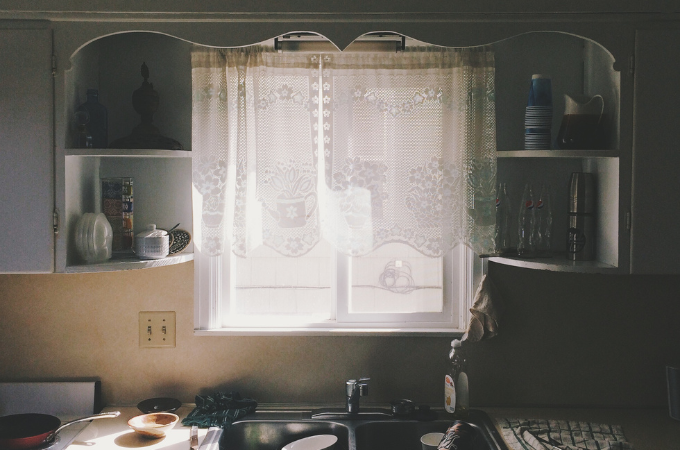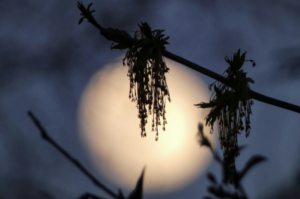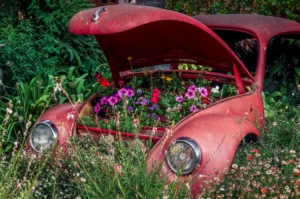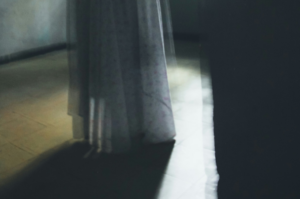
i.
There is a hill behind my grandfather’s house in Nagazi. Not too high that it appears dangerous and not too low that it disperses our interest in it. It was just the right size for the bi-annual game of hide and seek between cousins. I spent my visiting days exploring the mound and discovering the stories that took shape there. It was a symbol of my childhood and my family, and I felt tied to it. I spent hours on the hill with my cousins, running up and down its slope, and laughing at the slowest of us. I told countless stories about the hill to my friends. I used to say it took form on the day I was born. This was an attempt to explain to myself that the connection I felt wasn’t made up but a real thing that existed and was known to everyone.
As a child, I found so much joy in going home. I was not conscious of a lot of things, but I registered enough. The air agreed with my lungs and the dusty roads that led to the houses were always familiar, no matter how long I stayed away. My grandfather’s light skin was a wonder to me, and I enjoyed watching him. We have two houses at home – my grandfather’s, and his brother’s. He lived northward, and his brother lived southward, but we called north Nagazi-uvete (down) and south Nagazi-eba (up). Both houses are unpainted and surrounded by trees. My aunties fussed about me and my cousins because we ran around a lot and did dangerous things, such as the almond tree in front of my grandfather’s house that we learned to backflip off of. One time, a bushpig bit one of my cousins in the butt and that was all we could talk about for a while. There are so many stories rooted at home.
We had a family tradition. For Eid al-Adha, every member of the family travelled back home. I recall that being the climax of my years. I met cousins who were chiefly strangers, but for a week or two, we were best of friends. There are pictures taken in front of my grandfather’s house that captured those visits. The men standing in a line, the women sitting before them, the older kids standing or sitting at the edges of each line, and the little ones littering the mats that were laid before the women. Me in a yellow dress with mirror glasses on, my cousins in shorts and glasses, my father seated amongst his brothers, heads thrown back in laughter over a funny remark, the women gathered and talking over a pot on the fire. Looking at these pictures always transported me back, to a time when the core of my family was still deep-rooted at home.
ii.
In 2018, I left my state for another to pursue a higher education. During my A-level year, I met a woman. She sold foodstuff at the junction beside my hostel. I overheard her speaking my native language and I was reminded of all the beautiful memories of home. I did not know this woman, but she embraced me when I replied to her in Ebira. I was a welcomed familiarity to her as much as she was to me. She became a safe space in a land filled with mostly strangers.
The first question she asked me was “ihi’u na’ehi tu?” when was the last time you went home? In this question, home is not the place my family currently resides or my place of birth. Home is the one place that two strangers in a new city can claim as theirs and speak about with the same amount of longing in their eyes. Home is nestled within the three towns of Ebiraland. It is interwoven into its plain houses with uneven rooftops, with mosques built into their corners, each one a unique character. In my culture, home is a shared place. You are a foreigner wherever else you dwell. Ihi’u na’ehi tu? This question pulls and tests a person’s bond to their roots.
My memories of home are divided into two; before and after our grieving. Before, home was a place filled with the familiar sounds of laughter. After, it felt like the thread holding us together went loose. There was no bonding in our grief. We’d go home occasionally but never with the same yearning. We were broken and somehow, forgot how to hold on to each other.
I consider myself a wanderer, detached from the places that make up my identity. I have not been to many places, or seen enough, but my family is drifting. Tendrils taking up spaces that aren’t home. I was 10 years old the last time my siblings and I all lived in the same place. After my parents died, our lives branched out. My oldest sister got married and moved away with my younger sister. My brother and my two other sisters were university students and were never home. I spent my teen years living with my uncle. When I finally had to pick a university to study at, I picked an unfamiliar place, allowing myself to fully drift as well.
iii.
My cousin had her wedding ceremony at my grandfather’s house in 2014. My siblings weren’t present, but I was. I was excited to be back home, especially for an event most of my family would be present for. I wanted to be immersed in the solidity of my childhood. But it wasn’t the same. My cousins were all grown, and it became more obvious we were strangers. We’d forgotten how to be together and reflect each other’s happiness. It was home, but the emotions weren’t the same.
My grandfather and his brother died in 2018 and 2019, respectively. I didn’t go home for either of their burials. They were a significant part of what made the land home to me, and I couldn’t bring myself to experience it without them, to walk through hallways devoid of the echoes of their voices.
I’ve spent the greater part of my life chasing after an identity, feeling like I didn’t belong in the places I stayed. I’ve never felt like I was Ebira enough. The periods I spent experiencing home kept those feelings at bay. But I fear that I have become homeless. That it will not be part of my history. How do I pass down what I left behind? How do I tell stories of a place I may never be able to show?
In my first year of university, threatened by the possibility of completely losing my home, I bought a bead bracelet on impulse. The Ebira tribe has beads as one of its cultural materials. These beads are used as accessories. But the bracelet I wear is an anchor, rooted, a permanent feature, a reminder of home. When I slipped the bracelet on, I thought, this is your first independent step to rediscovering home, this is how you remind yourself of everything you cherish.
iv.
When was the last time you went home? I used to have an answer to this question. I went home last week, last month, last year. I haven’t been home in six years. It hasn’t felt like home for way longer. I am still running from the memories of home and the people I shared it with. I am still running from the acceptance that my home is no longer the way I know it to be – colourful and filled with laughter.
I will go back home, but I’m not sure when. I’m not ready to face the pieces of myself buried there. My drifting is inevitable. It is what fuels my yearning. I hope that when I eventually seek home, I know exactly what I am looking for, and I hope I find it. But for now, I am continuously in pursuit of that first question. Occasionally, when I introduce myself to another Ebira person, they’ll ask “Ihi’u na’ehi tu?” Only when I hear it, can I allow myself to be transported back to the hill behind my grandfather’s house, to home and its intricacies.
Photo by Greg Rakozy on Unsplash










Aria July 03, 2024 15:35
A beautiful piece, one that stirs emotions so deep because it’s relatable, even though you wished it wasn't.